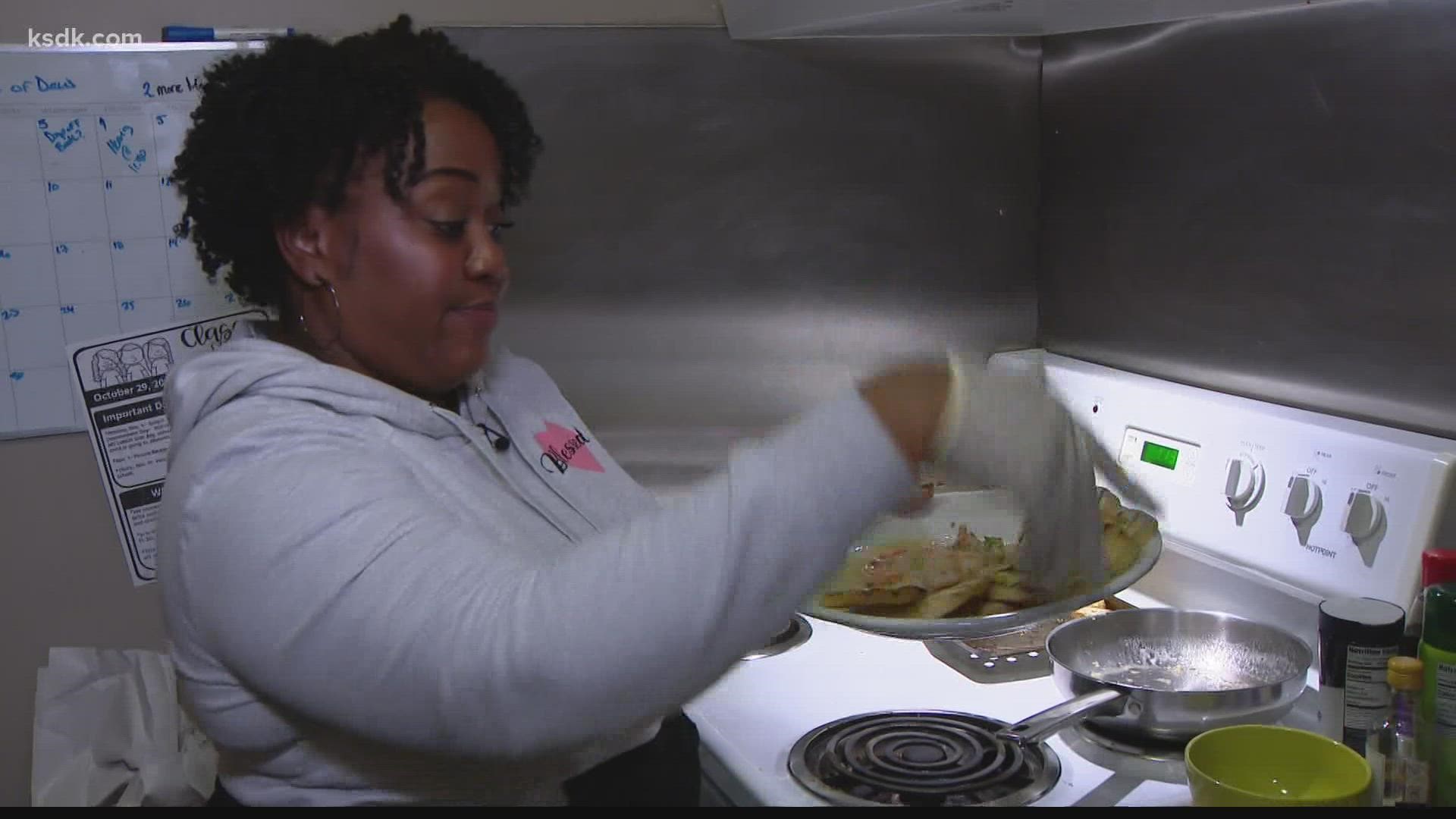ST. LOUIS — We constantly hear about so many jobs but not enough workers. In fact, one study shows there are now enough jobs in Missouri to employ nearly everyone who lives here.
So where are the workers? It depends on how you define workers.
Jazzy Davis is a single mom and says she lost two jobs in commercial kitchens during the pandemic. She spent years working in fine dining establishments in St. Louis, but she wanted to spend more time with her daughter, who just started kindergarten this year.
She got work as a daycare cook, but when the pandemic closed down the school, Davis found herself unemployed.
She then got a job doing banquets at a country club, but when the pandemic changed the guidelines for large gatherings, she found herself out of work again.
She said she started working for Door Dash delivering food while selling plates to her friends and neighbors. She also started selling sauces and rubs.
"I'm hoping to have a sauce line on a website soon," Davis said.
Davis discovered she could work doing what she loved, in a safe way, and still take care of her daughter. It was a lot, but it was working.
Soon after, she started delivering packages for a large retailer, but then she was rear-ended in a hit and run. She was in pain and couldn't stand for long periods. She collected a little more than $300 a week in workers' compensation, and she was getting a little help from her parents.
Once she subtracted rent, utilities, transportation, and living expenses, she didn't have much left.
"There's no way people are living off of $16, $17 an hour," said Davis. "I can understand and appreciate why people are like, 'I'm not going back to work. I'd rather just sit at home and collect unemployment.' I'm the person that wants to go back to work, but make it cost-efficient for me."
Davis is non-stop working for herself, though her injury from the crash slows her down. She is now looking for remote work to pay her bills while she comes up with a plan to open a catering business.
And she's not alone. Rebecca Ritter works for the SLATE Missouri Job Center and said a lot of people like Davis want to start over and work for themselves. At the same time, many are looking for training and higher-wage jobs.
"$50,000 and above is what is really going to get you not on public assistance, able to work, provide child care," said Ritter. "So to tell someone, 'We'll pay you $15 an hour,' but the cost of rent is going up, the cost of utilities is going up. Inflation is happening. That entry-level increase is still not going to sustain a wage for a family of three or four individuals."
Davis said she's concerned about the future but is working hard to make ends meet.
"I got my rent and stuff paid for this month, but December is coming up," said Davis. "Christmas is coming up."
Davis recently went half a month without heat in her apartment, but the landlord still charged her for the full rent. She said she is ready for a break. She's hoping it comes in the form of a work-from-home job that will help pay her bills and give her some flexibility with her daughter and her dream of cooking.
"If I can work from home and make more money, I would do it," said Davis.
Experts said it's going to take a number of things to help bolster the workforce: higher wagers, making childcare more accessible, reaching immigrants or underserved communities to name a few.
Do you have a worker shortage story you'd like to share? Email mli@ksdk.com.

